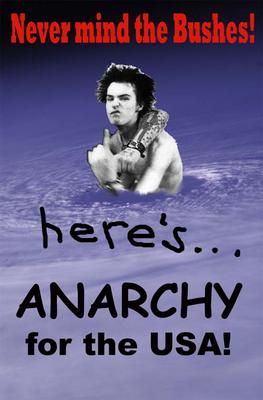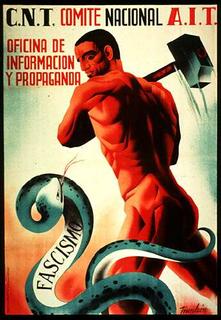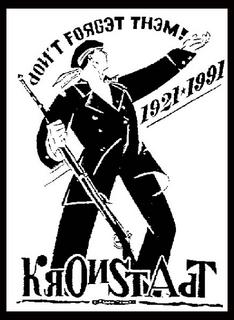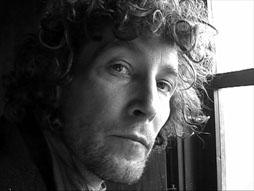The Legacy of Julian Beck and The Living Theatre Today
 Julian Beck
Julian BeckNote: For those of you who are not familiar with The Living Theatre, and its founders Julian Beck and Judith Malina, then welcome to a new universe! Political Theatre, theatre of joy, theatre of liberation, theatre of the ‘beautiful non-violent Anarchist revolution’, the Living gave birth to Off-Broadway, influenced generations of artists and activists, from the Beat poets of the 50’s, to Jim Morrison and the turbulent and wild 60’s, into the prisons of Brazil in the 70’s and still today in Europe, the US and the world this group continues to explore, challenge and define what it means to be an artist.
What follows is a commissioned article written for the 20th anniversary of the passing of Julian Beck that I want to share with blogland, of his living legacy and of the group’s more recent story. There are literally thousands of ‘hits’ for The Living Theatre to check out on the Internet, as well as many books and films, for those of you interested in theatre, poetry, pacifism and politics!
The Legacy of Julian Beck and The Living Theatre Today
Perhaps the test of a person’s influence is the extent to which his or her ideas continue to inspire, to give example of a path that others can for themselves substantiate. Equally so, that person’s life and work provide a measure of ones own work: a reference point in their experimentation, in their commitment and the possibilities of success. September 15 marks 20 years of the passing of Julian Beck, yet the work of the Living Theatre continues. We as a group, as well as any one working today in theatre, or poetry and film, have always before us his genius as a model of a complete artist. Not only is this a great challenge because of the wealth and scope of his work, but also personally I feel a certain responsibility to try to reach the level of his passion, his expertise, his profundity intellectually and his effectiveness as an artist and also as a human being. I have no doubt that he was one of the most important artists of the last century and if we add that other incredible element of the Living, that is Judith Malina, the story of the combination of these two great forces I am certain will be studied well into this new century, if not beyond. Fortunately for us she is thriving, (at 80 years of age!) and continues to create, always searching for the next play, the next form, that will realize ‘the beautiful non-violent anarchist revolution’.
Judith Malina, Paradise Now
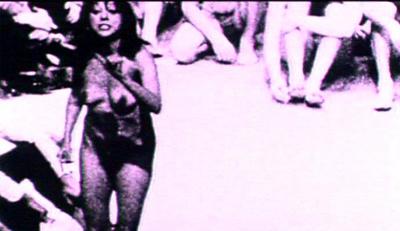
Certainly one key element in this marvelously rich theatre is the work of the group. Too often when speaking about the Living there is an element missing, and that element is the dialectic between not only Judith and Julian (tempestuous as it was at times, so I am told), but also most importantly the dialectic between those two power dynamos and the company. Theatre, more than most arts, is a collaborative effort and with the Living one cannot minimize the importance of the group: those plays which brought the Living its greatest notoriety could only have been produced by the challenging presence of an ensemble. Challenging, because as Judith explains, there is an dynamic correlation between a social movement with that of an avant-garde of political artists: often the movement may follow behind the artists; at other times it is the artists that need to catch-up to the movement.

And so this rapport between the proper authority of the directors with the ensemble is equally valid. It’s sufficient to look at a play like Paradise Now: from the incredible amount of energy and experimentation of the ‘60’s generation, Judith and Julian were there to inspire, and to be inspired by, that great movement.
Perhaps I am in a unique position to speak on this legacy of the Living after his death, for I actually met the group while he lay in the hospital writing his last marvelous texts. Having never worked with him personally one could say I am part of the “after” generation. If one likes, one can look at the period “with Julian” and the period “after Julian” when studying the Living, but there is a risk of oversimplification, as many tend to do. If only life were that simple. Especially because the history of the Living is still being written. Still many have tried to ‘write off’ the Living as having finished their contribution to theatre creation. Yet those who express this idea really are uninformed and generally make up what I call the “cynical generation”: those deluded or critical of the 60’s, though they speak of it often. Looking at the Living today for example, or other political artists, these same people tend to lament: “oh but that’s been done already”. This theme of being a “Living legend” and the problem of style (the ‘Living’ style) and of creating new and vigorous work is an ongoing subject that we consistently confront. Certain ‘disobbediente’ (no-globalists), for example, commenting on a performance in Piazza Verdi (Bologna) criticized that our ‘peace and love’ style is no longer appropriate- as if their confrontational tactics and battles with the police are something new!
Nonetheless from our audiences, in New York City and further a field in the USA, to western and eastern Europe (Belgrade, Sarajevo, Prague), to a small villages and large metropolis in the mid-east (Lebanon), in fancy theatres, or Centri sociali (squatted social centers) of Italy and especially in the street where we always take our pieces, the Living’s new and old work has been enthusiastically received. Even more so have we encountered in workshops many persons who continue to testify that the Living is a new and fresh theatre that gives them an urgently needed outlet for their energies, and tools for moving forward in their own work. There is no doubt by the involvement and consequent excitement of these participants as wells as from our audiences that Julian Beck’s legacy and the present work of the group is alive and vibrant.
Collective creation is an example of Anarcho-Communist Autogestive Process which is of more value to the people than a play. Collective Creation as secret weapon of the people.
I will touch on briefly various periods after the death of Julian to underline this crucial aspect of our work: theatre as conduit for mobilization. Students ask me sometimes if it’s possible to create new forms in the theatre today. I usually reply: No. Or as Judith says, “Only every hundred years or so does someone break into a new form”. But what can excitingly occur, and what is more important for me, is a development of its social function. For whom do we make theatre? Who comes to see it?
Third Street Community Center
The Body Pile, Resist Now (Bologna)

After knocking out walls and a ceiling, amid much excitement, we launched the new Living Theatre. The idea was to put new work into a revolving repertory. For almost four years we created four new plays each year, many texts adapted from poets in direct collaboration with us. In addition, once a week we had our Living Poetry series where the likes of Allen Ginsberg, Herbert Hunkie and Taylor Mead, among other famous names, were presented, as well as many lesser know poets and ‘open mic’ nights where any and everybody could present their work. Also there were jazz festivals, new play readings, dance showcases, outside groups with new productions, and many groups from the neighborhood with their events, parties or meetings.
Needless to say there was always activities until late night with people drinking, drugging, sleeping, making love, organizing, rehearsing, talking, fighting. Much like the centri sociali here in Italy the Third Street space had a little something for everyone yet its focus was political theatre and everything that was presented there had this flavor of political event.
There is not space enough here to elaborate the line of development of the Living Theatre form. Yet perhaps from its first political activism in the streets of New York in the ‘50’s against the atomic bomb, where to be present in a heightened sense, to appear in the street as in daily life yet in a theatrical manner of the protest, the first roots of non-fictional acting took hold. So it was at Third Street when together with a group of homeless persons from a local shelter we created the play, The Body of God. Again these were persons, not actors- ‘on stage’ but not acting- appearing within the frame of a theatrical presentation. Yet by the fact that there was no fiction, other than perhaps an honest and sincere storytelling, life became merged into theatre and theatre became an event.
Paradise Now
This aspect of life as theatre, theatre as life, be it in The Connection (1959) with live jazz musicians challenging the white actors not to ‘fake it’; or The Brig (1962) about Marine-corps prison with a staging so real and harsh it was impossible to ‘act’, or Paradise Now (1968) where the confrontation with, and the participation by, the public destroyed any separation between life and art, this super-realism of the event was the great discovery of the Living. Those today that do ‘Performance’ or ‘Performance Art’ perhaps do not realize the contribution of the Living to those forms. Yet what the Living’s forms maintain (and what much of ‘performance’ lacks) is a richness of styles and form with profound roots: the political-epic theatre of Piscator, expressionism, Artaud, the biomechanics from Meyerhold, Brechtian theatre, the theatre of the word and poetry, especially the Beat poets, and also the great influence of Jazz and even modern dance.
Perhaps for the very fact of our deep involvement in the local struggle in the East Village the city government found it all too necessary (and easy) to force us to close the space. One need to understand that there was little public funding for productions in that period (and in all periods!), nor for the actors, and at Third Street no one was on salary except myself (as technical and general manager) and one or two administrators. Thus faced with the impossibility of ‘coming up to code’ (licenses, regulations of building codes, etc), together with high costs of operating expenses, we had to close the theatre.
Again vagabonds
At this point the Living numbered some thirty active members. We had reconnected also with Europe and Italy, touring and work-shopping extensively, in this period. Once again without a home the Living leaned on its friends with theatres and rehearsal spaces in New York, and producers in Italy who could organize work. Even so, with the many difficulties for the company and its individual members who had struggle to stay afloat, the period produced notable plays such as Utopia, Capital Changes, Anarchia, the revival of Mysteries and Smaller Pieces (1964), and our important work against the death penalty, Not In My Name.
"I - Thou", Resist Now Perhaps here one can comment on a process particular to the Living: collective creation. Most of the masterpieces of the Living during the ‘60’s and ‘70’s were all created collectively and this process continues today. The balance of the dynamic between direction, text writing, creation of the staging, design and music can best be described as fluid, depending on the needs of the play. (Hanon Reznikov for example has written four of our recent productions, his inspiration often the result of discussions from the group.) No doubt anyone looking in on one of our rehearsals would probably not immediately grasp the process as seemingly five or six, if not more, voices tend to direct by committee. In the Living anyone can give a ‘note’ to another actor: a difficult and sometimes frustrating process yet one feels part of a group process and here the Living achieves a certain praxis of its anarchist-pacifist philosophy. This also comes into play as one is often asked: how does one join the Living? With no formal auditions, to work with the Living one simply must ‘be with the Living’. Like any community the process is organic, depending on place, time, circumstances and the needs of a production. One just ‘comes around’.
Perhaps here one can comment on a process particular to the Living: collective creation. Most of the masterpieces of the Living during the ‘60’s and ‘70’s were all created collectively and this process continues today. The balance of the dynamic between direction, text writing, creation of the staging, design and music can best be described as fluid, depending on the needs of the play. (Hanon Reznikov for example has written four of our recent productions, his inspiration often the result of discussions from the group.) No doubt anyone looking in on one of our rehearsals would probably not immediately grasp the process as seemingly five or six, if not more, voices tend to direct by committee. In the Living anyone can give a ‘note’ to another actor: a difficult and sometimes frustrating process yet one feels part of a group process and here the Living achieves a certain praxis of its anarchist-pacifist philosophy. This also comes into play as one is often asked: how does one join the Living? With no formal auditions, to work with the Living one simply must ‘be with the Living’. Like any community the process is organic, depending on place, time, circumstances and the needs of a production. One just ‘comes around’.
Yet often the members of the Living are effectively scattered to the winds. Surviving as an artist in New York or Europe is a daunting task and to work with the Living entails at times much sacrifice. However this also bears fruitful work. Theatre groups born from the Living, or members who have parallel companies, are many. We all are directors, writers, poets, musicians, choreographers, designers, producers, and activists engaged in work outside the Living, which is fed and made more rich by this work, and who themselves take sustenance from the Living. Here in Italy there are few cities or centri sociali that have not hosted a Living Theatre workshop or spettacolo. One sometimes hears- “Which Living Theatre?”- because from Napoli, to Roma and Bologna there has been a continuous presence of Living members creating and maintaining ‘cell groups’. And these same groups have repeatedly broken off the Living Theatre branch to stand autonomous and forge their own ways.
A Home in Europe
'The Rite of Opposite Forces' From 1999 to 2004 the Living found a home here in Italy, Centro Living Europa, in Rochetta Ligure in northwestern Italy. The successes and problems of this period are documented in the film Resist by Living actor Dirk Szuszies and also one can refer to the following link for several articles from this period (see: Gary's misc writings). Briefly, we created Resistenza, about the partisan struggle against fascism, Resist Now, presented for and during the tense days of the G8 in Genova, Love and Politics, with J. Malina and H. Reznikov and Enigmas, based on one of the last texts by Julian Beck. The work also in New York continued with The Water Play, Resist Now (American version), Quality of Life Crimes, and The Code Orange Cantata, for (against) the Republican National Convention (2004). We continued to tour Europe, and also Lebanon. I also recreated the Living’s Seven Mediations on Political Sadomasochism (1972) and wrote and produced two other new productions, Siddhartha, the River Smiles (from H. Hesse), and Giovanna la Mariposita (based on the life of Joan of Arc) all under the auspices of the Living.
From 1999 to 2004 the Living found a home here in Italy, Centro Living Europa, in Rochetta Ligure in northwestern Italy. The successes and problems of this period are documented in the film Resist by Living actor Dirk Szuszies and also one can refer to the following link for several articles from this period (see: Gary's misc writings). Briefly, we created Resistenza, about the partisan struggle against fascism, Resist Now, presented for and during the tense days of the G8 in Genova, Love and Politics, with J. Malina and H. Reznikov and Enigmas, based on one of the last texts by Julian Beck. The work also in New York continued with The Water Play, Resist Now (American version), Quality of Life Crimes, and The Code Orange Cantata, for (against) the Republican National Convention (2004). We continued to tour Europe, and also Lebanon. I also recreated the Living’s Seven Mediations on Political Sadomasochism (1972) and wrote and produced two other new productions, Siddhartha, the River Smiles (from H. Hesse), and Giovanna la Mariposita (based on the life of Joan of Arc) all under the auspices of the Living.
The Moloch Machine, G8 Genova 2001
Starting Always Over
Today, once again, the Living is recreating itself. Having lost our sede here in Italy, and embroiled in legal, bureaucratic and financial difficulties for the opening of a new theatre in Manhattan, the Living, at this recurrence of the 20th anniversary of Julian’s death, seems to be starting anew! So where are we now? Returning to the words of Julian, the question always remains: why go to the theatre? And if indeed our answer affirms that yes, we should go to the theatre, then, what theatre, and where?
The only theatre possible today is ‘Emergency Theatre’.
Julian’s book The Life of the Theatre reads even more strongly than ever as an owner’s manual for his theatre of emergency. There we find, as well in his last book and testament Theandric, two essential and absolute treasure chests of texts, ideas, proposals and suggestions for artists and a people in struggle: for a political theatre. How can any artists today not commit their energies to create works that address the fundamental crisis that we face in this time of emergency? Of continuous war, of imminent ecological disaster, of economies of vast wealth and privilege amidst insufferable poverty and scarcity, of a culture whose core is entirely corrupt and therefore only supports its own corruption.
Yet from Julian’s voice still echoes the one possible antidote to this demise we are experiencing: hope. The function of theatre today, its role in life, can only be realized if it is committed to undermining a culture antithetically opposed to hope. ‘How can we make a theatre which is worthy of the life of its spectators?’, asked Julian. We appear, and as Judith expresses, we try to unify the divided aspects of life, what is seemingly impossible to unify: the political, the family and social, the religious and spiritual, the sexual, the psychological, the artistic, the economic- within and throughout daily life. If in traditional theatre the actor waiting in the wings is one person, and only as she steps onto stage becomes ‘alive to her great art’, that is, becomes another person, what we desire instead, and see especially in Julian Beck, is this possibility of total theatre meeting a total life. One is inseparable form the other. One is always ‘on’- there are no wings to hide behind in life. Living: life is the event and the event is Living.

